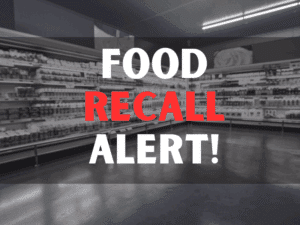Las Vegas, NV (April 9th, 2025) – A new bill could reshape how self-driving trucks operate in Nevada. The proposed law comes as autonomous vehicle testing expands across the state.
Nevada lawmakers are debating whether to ban autonomous semi-trucks, and other commercial vehicles, from operating without a human operator. Senate Bill 395 would prohibit driverless commercial vehicles over 26,000 pounds, or those designed to carry more than eight passengers, from using the state’s highways without someone behind the wheel.
Las Vegas Roads and the Risk of Driverless Truck Accidents
Major routes, including Interstate 15, U.S. Route 95, Highway 215, see heavy commercial traffic every day. If autonomous trucks are allowed to operate on them, the concern is that the risk of serious crashes may rise.
A Response to Driverless Truck Concerns
Senate Bill 395 is a response to growing concerns over safety. Human drivers may get distracted, fatigued, or impaired, but they also bring judgment and adaptability in unpredictable situations. When something goes wrong, a trained driver can react. With a fully autonomous vehicle, the ability to respond to road hazards, equipment failures, or poor weather may depend entirely on pre-programmed logic or sensor accuracy.
Why Nevada Lawmakers are Targeting Autonomous Trucks
The debate over autonomous trucking in Nevada isn’t new, but this proposed legislation would draw a hard line – no driverless operation for large commercial vehicles. Lawmakers are reevaluating how existing traffic laws apply to self-driving technology, especially when it involves 40-ton machines on public roads.
The push behind Senate Bill 395 reflects growing discomfort with the idea of removing human oversight from vehicles that carry massive weight and pose serious injury risks in a crash. Compared to passenger cars, the margin for error is smaller, and many of the common causes of truck accidents still apply to driverless vehicles, just in different ways.
Mechanical Issues
Mechanical issues, including brake failures, can still happen, whether a human is behind the wheel. If no operator is present, identifying and responding to the failure becomes harder.
Blind Spots and Lane-Change Accidents
Motor vehicle accidents involving blind spots and lane changes remain a risk, even with the advanced cameras and radar that self-driving trucks are equipped with. Autonomous commercial trucks must process that data correctly and instantly to avoid sideswipe or under-ride crashes.
Poor Decision-Making
Human drivers can often read subtle cues during traffic shifts. AI, however, isn’t always equipped to do that. Therefore, poor decision-making may lead to high-speed rear-end crashes.
Improper Cargo Loading
If cargo it not correctly loaded, it can make any commercial truck more unstable, especially in turns or downhill slopes. Autonomous systems may not detect such issues or risks until it’s too late.
These, and other issues associated with putting self-driving tractor-trailers on the road, lead to gaps in accountability. Who’s responsible when something fails? And how can a victim or trucking accident lawyer prove what went wrong without direct witness testimony or clear negligence?
Self-Driving Truck Advocates Say the Tech Reduces Human Error
On the other side, supporters of autonomous trucking point to one thing: human error is a leading cause of most commercial vehicle crashes. Fatigue, distraction, and reaction time limit even the best professional drivers.
Autonomous systems, by contrast, are designed to react faster, maintain consistent spacing, and avoid common decision-making mistakes. Supporters argue that removing human error from long-haul trucking could lower the overall number of highway collisions.
They also point to advancements in sensors, onboard AI, and predictive routing software as tools that, when properly monitored, could increase the safety for all drivers.
Why This Bill Matters for Truck Accident Victims in Nevada?
For people injured in truck accidents, this bill could have real consequences – both in how crashes are prevented and how cases are handled after the fact.
If Senate Bill 395 passes, it reinforces the idea that human oversight is still essential when operating large commercial vehicles. This idea may strengthen arguments in future cases where a lack of human intervention contributed to a serious collision.
It also helps clarify legal expectations. When the law says certain vehicles can’t operate without a driver, victims and their attorneys may have a stronger foundation for arguing negligence if those rules are ignored. The bill isn’t just about regulating technology. Rather, it’s also about making sure victims aren’t left navigating a legal gray area after an autonomous truck causes harm.
Our attorney at George Bochanis Injury Law Offices has more than 30 years of experience representing trucking accident victims and their families. We understand the physical, emotional, and financial toll of such wrecks, and will work to help you recover the maximum compensation for losses, including medical bills, pain and suffering, and lost income. Call 702-388-2005 for a free consultation.



